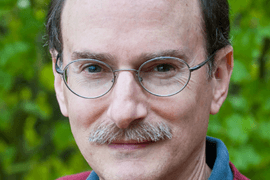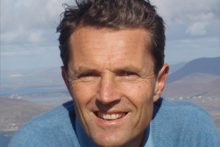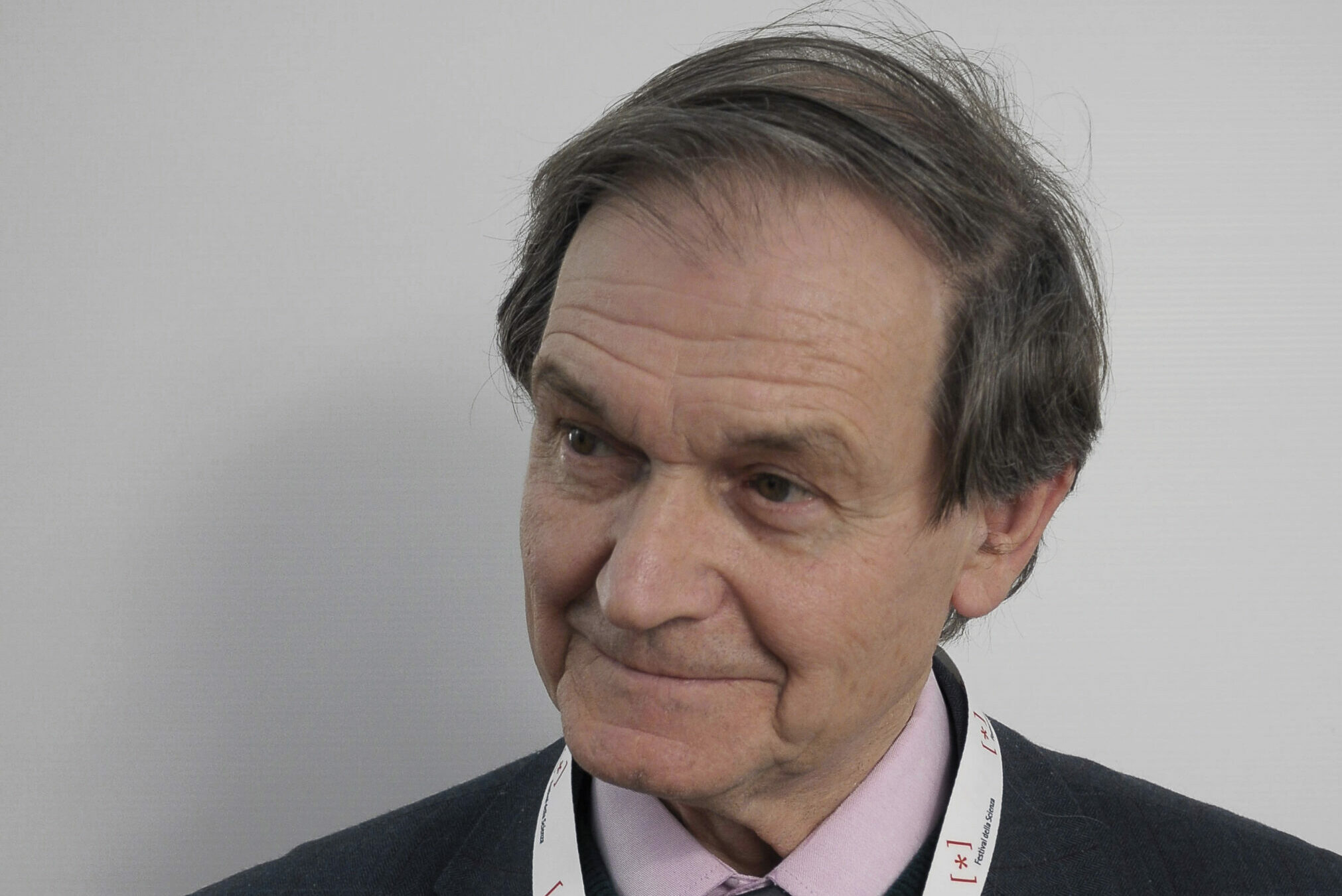Here you can find a list of quotes by prominent scientist and thinkers relevant to Galileo Commission’s remit.
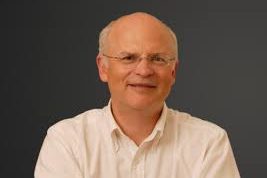
That middle way will not only need to accommodate the facts of new science, but it must also be competent to connect science to the cultural, ethical and spiritual dimensions of human life.
– Arthur Zajonc
I am very astonished that the scientific picture of the real world around me is very deficient. It gives us a lot of factual information, puts all of our experience in a magnificently consistent order, but it is ghastly silent about all and sundry that is really near to our heart that really matters to us. It cannot tell us a word about red and blue, bitter and sweet, physical pain and physical delight; it knows nothing of beautiful and ugly, good or bad, God and eternity. Science sometimes pretends to answer questions in these domains but the answers are very often so silly that we are not inclined to take them seriously.
– Erwin Schrödinger


For the purpose of constructing the picture of the external world, we have used the greatly simplifying device of cutting our own personality out, removing it; hence, it is gone, it has evaporated, it is ostensibly not needed. … In particular, and most importantly, this is the reason that the scientific world-view contains of itself no ethical values, no aesthetical values, not a word about our own ultimate scope or destination, and no God, if you please. [Therefore] we do not belong to this material word that science constructs for us. Consciousness cannot be accounted for in physical terms. For consciousness is absolutely fundamental. It cannot be accounted for in terms of anything else. The observing mind is not a physical system, it cannot interact with any physical system. And it might be better to reserve the term “subject” for the observing mind. … For the subject, if anything, is the thing that senses and thinks. Sensations and thoughts do not belong to the “world of energy”.
– Erwin Schrödinger
Science is, very usually, branded as atheistic. After what we said, this is not astonishing. If its world picture does not even contain blue, yellow, bitter, sweet – beauty, delight and sorrow –, if personality is cut out of it by agreement, how should it contain the most sublime idea that presents itself to the human mind? . . . Whence come I and whither go I? That is the great unfathomable question, the same for every one of us. Science cannot tell us a word about this.
– Erwin Schrödinger


Reality is what we take to be true. What we take to be true is what we believe. What we believe is based upon our perceptions. What we perceive depends upon what we look for. What we look for depends on what we think. What we think depends on what we perceive. What we perceive determines what we believe. What we believe determines what we take to be true. What we take to be true is our reality.
– Prof David Bohm
Knowledge of the historic and philosophical background gives that kind of independence from prejudices of his generation from which most scientists are suffering. This independence created by philosophical insight is—in my opinion— the mark of distinction between a mere artisan or specialist and a real seeker after truth.
– Albert Einstein

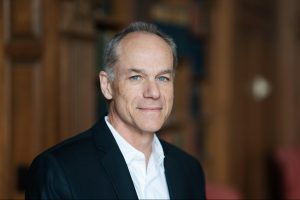
There is a difference between “science” and what we can call “scientism,” which is the notion that science can solve all problems. To a large extent, it is not science but rather how humanity has used science that has put us in our present difficulties. Because most people, in general, have no awareness of what science can and cannot do. So they misuse it, and they do not think about science in a more pluralistic way. So, okay, you’re going to develop a self-driving car? Good! But how will that car handle hard choices, like whether to prioritize the lives of its occupants or the lives of pedestrian bystanders? Is it going to just be the technologist from Google who decides? Let us hope not! You have to talk to philosophers, you have to talk to ethicists. And to not understand that, to say that science has all the answers, to me is just nonsense. We cannot presume that we are going to solve all the problems of the world using a strict scientific approach. It will not be the case, and it hasn’t ever been the case, because the world is too complex, and science has methodological powers as well as methodological limitations...So, I feel as if I am a guardian for the integrity of science right now; someone you can trust because this person is open and honest enough to admit that the scientific enterprise has limitations—which doesn’t mean it’s weak!
– Marcelo Gleiser
[A] common perception of scientists is that they all follow a distinctive procedure, which is described as the ‘scientific method’. This belief should be downplayed. It would be truer to say that scientists follow the same rational style of reasoning as (for instance) lawyers or detectives in categorising phenomena, forming hypotheses and testing evidence. A related and damaging misperception is the mindset that supposes that there is something especially ‘elite’ about the quality of their thought. Academic ability is one facet of the far wider concept of intellectual ability possessed in equal measure by the best journalists, lawyers, engineers and politicians.
– Martin Rees
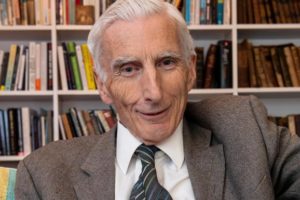
In science, the acceptance of new ideas follows a predictable, four-stage sequence. In Stage 1, skeptics confidently proclaim that the idea is impossible because it violates the Laws of Science. This stage can last from years to centuries, depending on how much the idea challenges conventional wisdom. In Stage 2, skeptics reluctantly concede that the idea is possible, but it is not very interesting and the claimed effects are extremely weak. Stage 3 begins when the mainstream realizes that the idea is not only important, but its effects are much stronger and more pervasive than previously imagined. Stage 4 is achieved when the same critics who used to disavow any interest in the idea begin to proclaim that they thought of it first. Eventually, no one remembers that the idea was once considered a dangerous heresy.
It would be most satisfactory of all if physics and psyche could be seen as complementary aspects of the same reality. To us [modern scientists], unlike Kepler and Fludd, the only acceptable point of view appears to be one that recognizes both sides of reality — the quantitative and the qualitative, the physical and the psychical — as compatible with each other, and can embrace them simultaneously. […] In my own view it is only a narrow passage of truth (no matter whether scientific or other truth) that passes between the Scylla of a blue fog of mysticism and the Charybdis of a sterile rationalism. This will always be full of pitfalls and one can fall down on both sides.
– Wolfgang Pauli
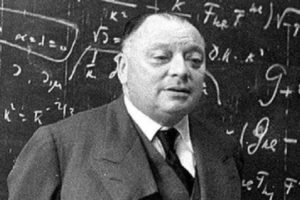

The difficulty lies not so much in developing new ideas as in escaping from old ones.
– John Maynard Keynes
We are not at the end of physics, but rather at the end of predictability and certainty, which means including novelty and creativity. And a science in which creativity and participation in the construction of the world are intrinsic is a science that overcomes the widespread alienation associated with the traditional scientific outlook. In this 'new rationality', probability will no longer be seen as ignorance or science as equivalent to certainty. Time is real and the future is open: we live not simply in an 'open society' but also in an open universe.
– David Lorimer
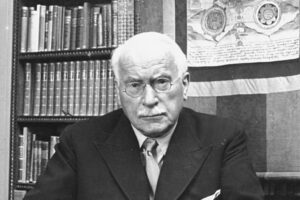
I shall not commit the fashionable stupidity of regarding everything I cannot explain as a fraud.
– Carl Jung
